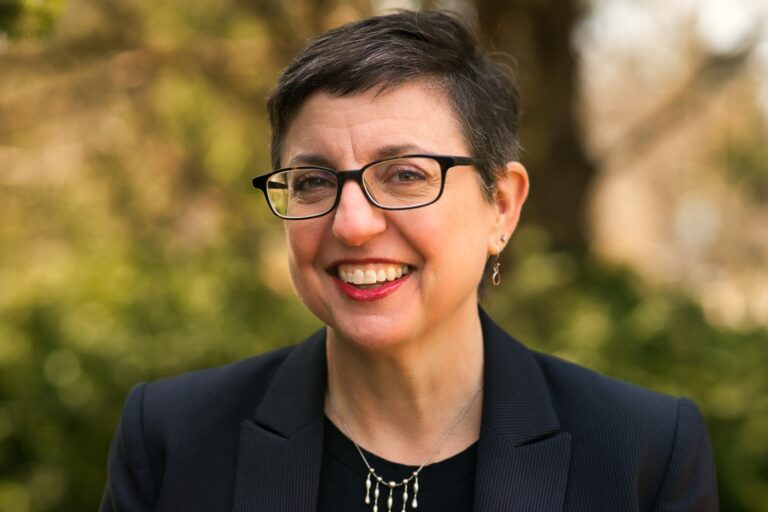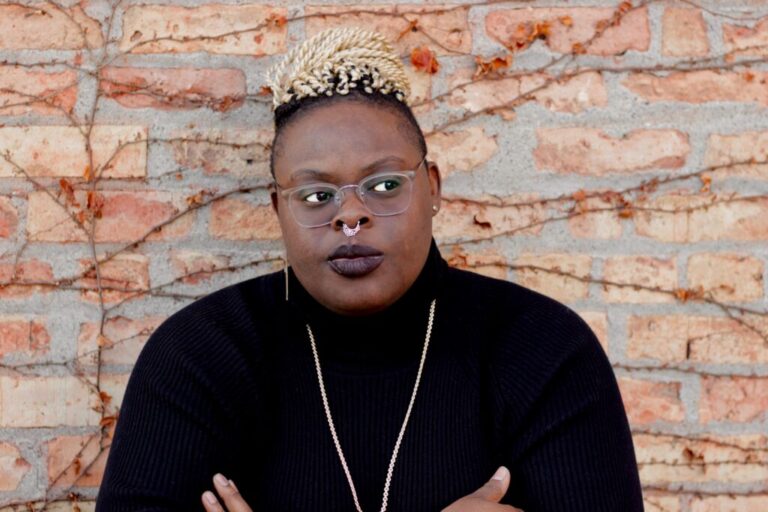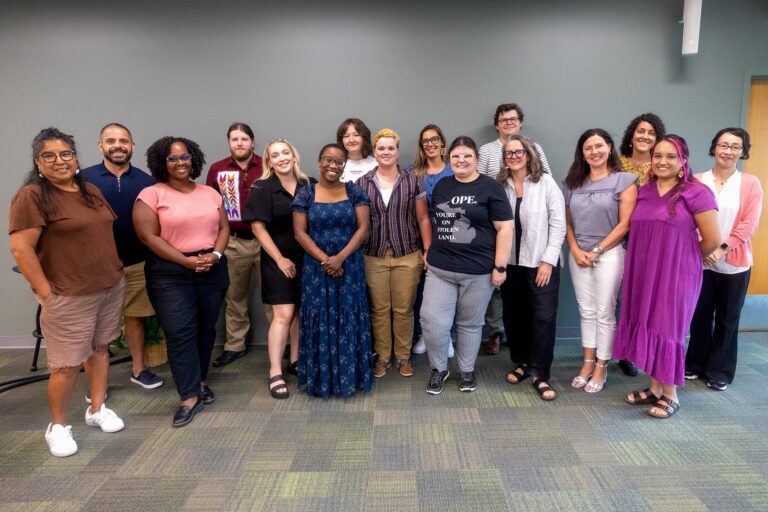Evamelo (Eva) Oleita, who is among the inaugural class of students majoring in African American and African Studies (AAAS) at Michigan State University, is researching the experiences of Black girls within predominately white institutions (PWIs) and how those students carve out spaces for themselves to thrive.
“Black girls at PWIs face challenges often unseen, navigating a world shaped by white supremacy. Yet, their resilience shines through,” said Oleita, who collected data through a range of interviews with five undergraduate Black women at MSU and through observing MSU’s AAAS classes. She recently presented this research at MSU’s Diversity Research Showcase for which she received a third-place award.

Oleita’s research poster, titled “If Nobody Got Us, We Got Us: Exploring Black Girls’ Spaces of Resistance Within Historically White Institutions,” focuses on the five Black students who find or create “homeplaces” to cope with unique discriminatory challenges. The study highlights two key areas: MSU’s Department of African American and African Studies and the transformative power of friendship and community among Black girls.
“The bonds of friendship offer understanding, support, and a sense of belonging in a predominantly white institution, while the AAAS Department provides a haven for Black students, fostering cultural connection and identity affirmation.”
“This research reveals how they built their own havens of safety and support, and the bonds of sisterhood and spaces like the African and African American Studies Department,” said Oleita, who also is majoring in Interdisciplinary Studies with a minor in Law, Justice, and Public Policy. “The bonds of friendship offer understanding, support, and a sense of belonging in a predominantly white institution, while the AAAS Department provides a haven for Black students, fostering cultural connection and identity affirmation. These connections offer a vital lifeline, proving that community is the key to thriving admist adversity.”
Drawing upon Black feminist theory from authors like bell hooks, Oleita’s study aims to investigate the role of community and site creation in fostering resilience and positive well-being among Black girls at PWIs.

“Black girls navigate education while carrying the weight of societal stereotypes often rooted in bias and discrimination,” Oleita said. “Upon entering higher education, many anticipate facing labels such as being loud or aggressive. Seeking solace and belonging from this, Black girls construct homeplaces, which are spaces for healing and wholeness as author bell hooks describes [in her essay Homepace (A Site of Resistance)].”
Instead of solely highlighting the challenges Black girls face, Oleita’s research celebrates their resilience and agency. It delves into the solutions they organically create through friendships, shared understanding, and self-built safe spaces.
Several major themes and patterns emerged throughout the study. In each interview, participants highlighted the importance of shared identity in fueling their relationships. Some also had never had many Black friends before coming to MSU where they were able to connect with a group of people who understand them and empathize with the challenges they faced, offering moral support for one another.

“When I was in high school and I saw police brutality, none of my white peers understood how that affected me and why it hurt me,” said one participant. “Once I got to MSU, I wanted to find people who understood why I empathize with the victims of police brutality, despite not knowing them personally.”
Other participants grew up in predominantly Black environments and understood the vital role community plays in their life.
“They understood the inherent comfort and support found within their shared identities,” Oleita said. “For them, being around other Black students, even in casual settings, provided a welcoming refuge from the unfamiliar reality of a predominantly white institution. The simple connections nurtured a sense of belonging and eased the burden of navigating a new environment.”
“While institutions like MSU have room to grow in fostering safe spaces, Black girls are already forging their own paths. They find solace in shared experiences, understanding and belonging, a testament to their strength and resourcefulness.”
Finally, across all backgrounds, sisterhood emerged as a constant. Whether lifelong friends or newfound connections, these Black students found a lifeline in each other. The bonds transcended the PWI, offering crucial support and a sense of belonging.
“While institutions like MSU have room to grow in fostering safe spaces, Black girls are already forging their own paths. They find solace in shared experiences, understanding and belonging, a testament to their strength and resourcefulness,” Oleita said. “In the future, I hope to continue to study the way we build community and further investigate what community and belonging looks like for others. Their stories hold the power to transform educational landscapes, ensuring everyone can find their rightful place in a world that celebrates and values their individual identities.”


